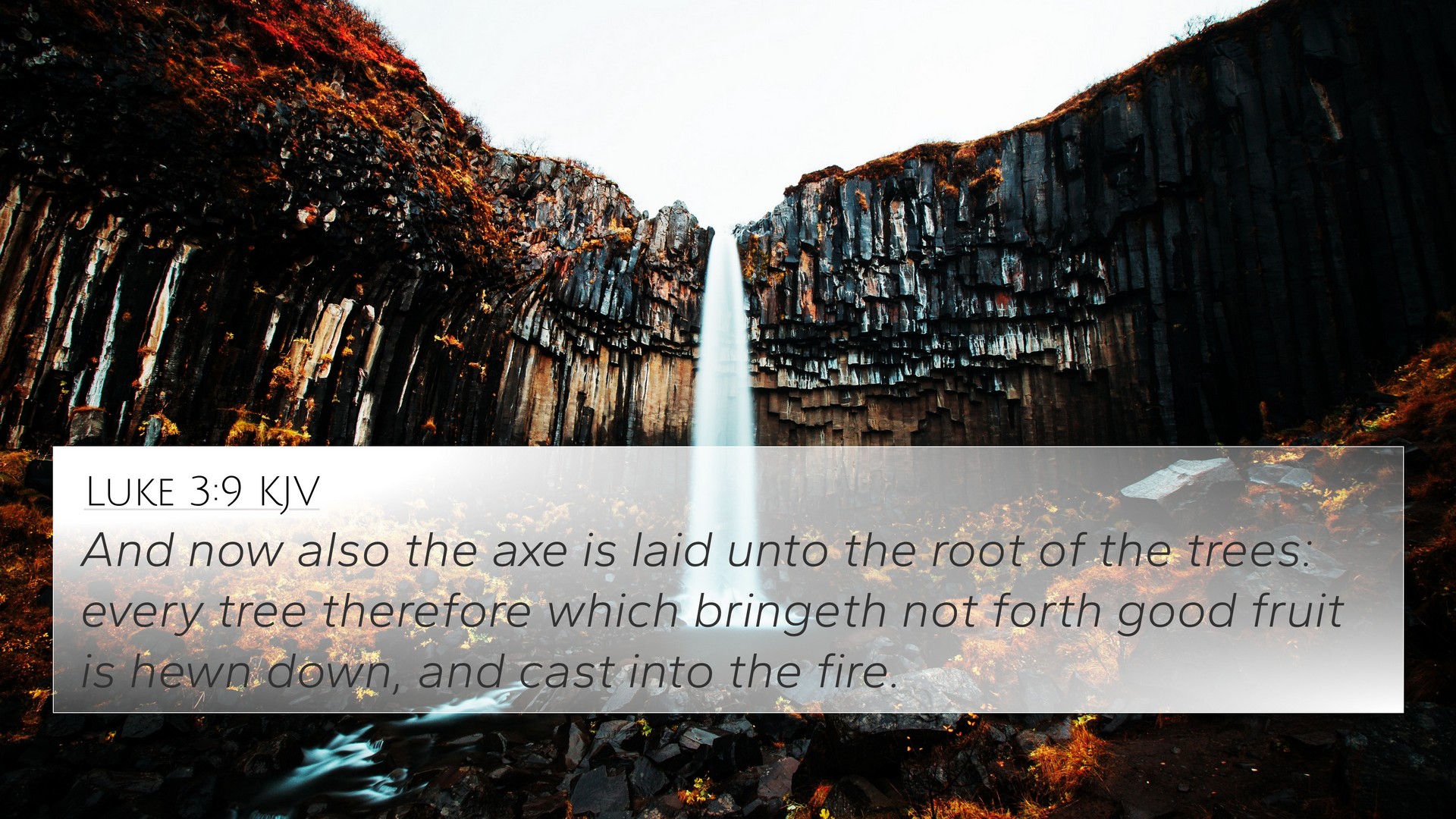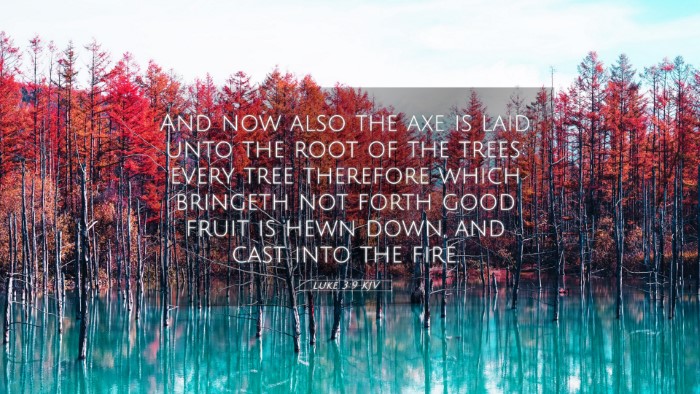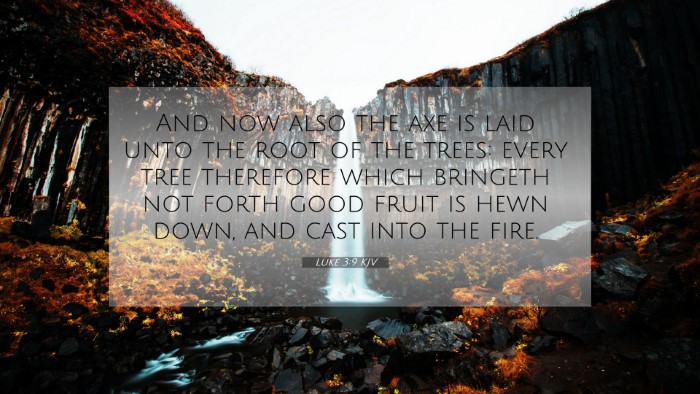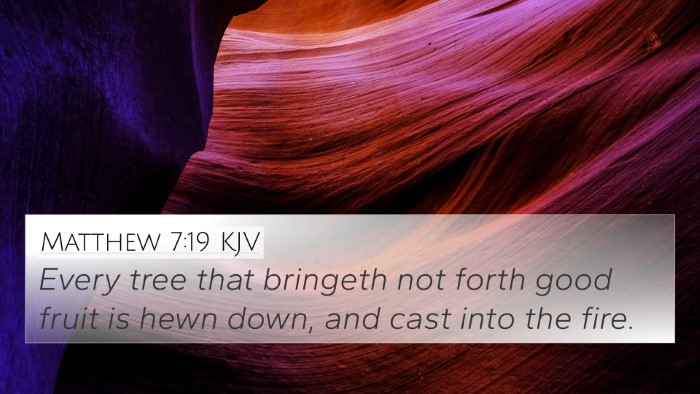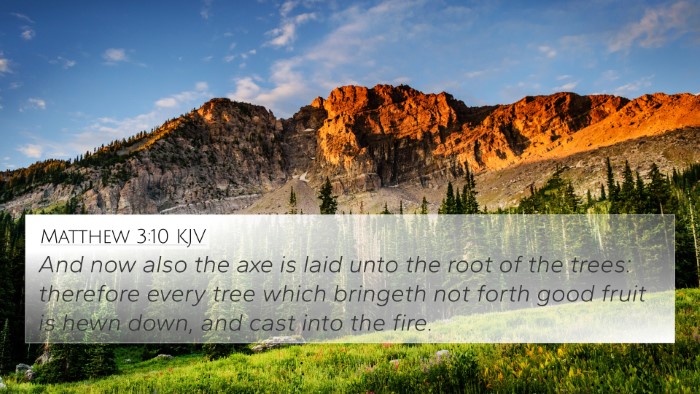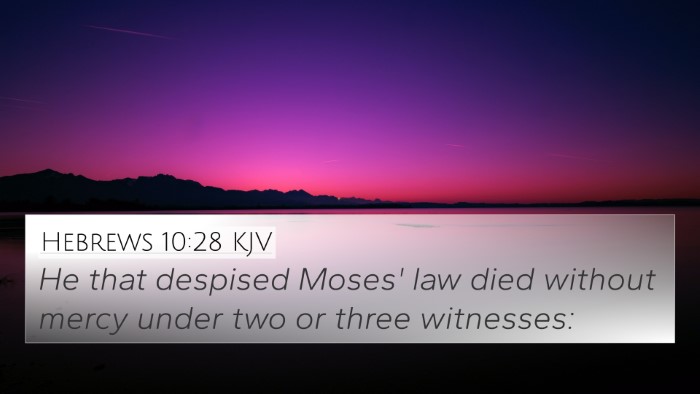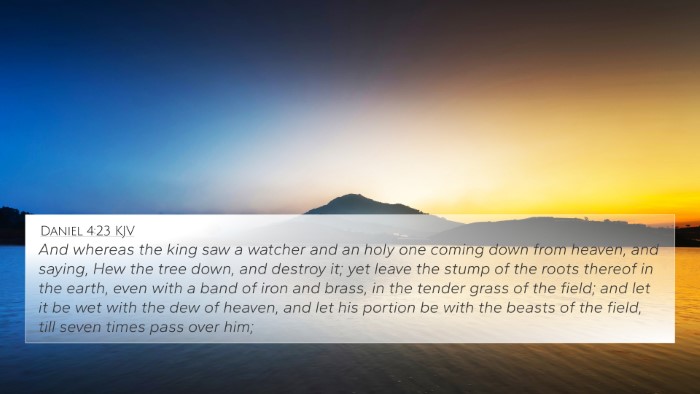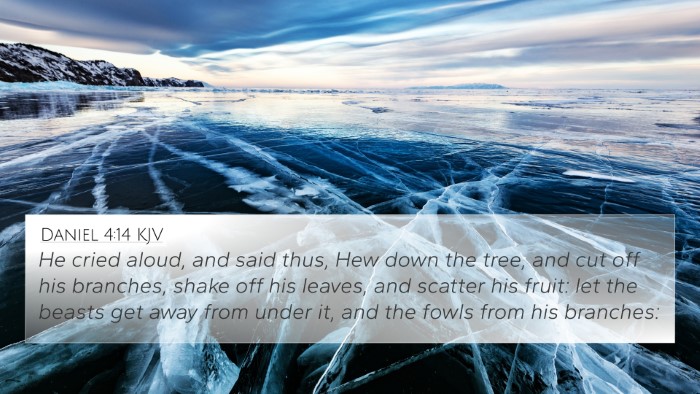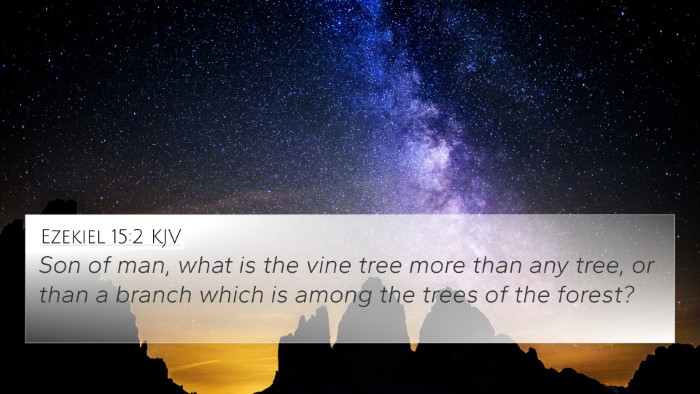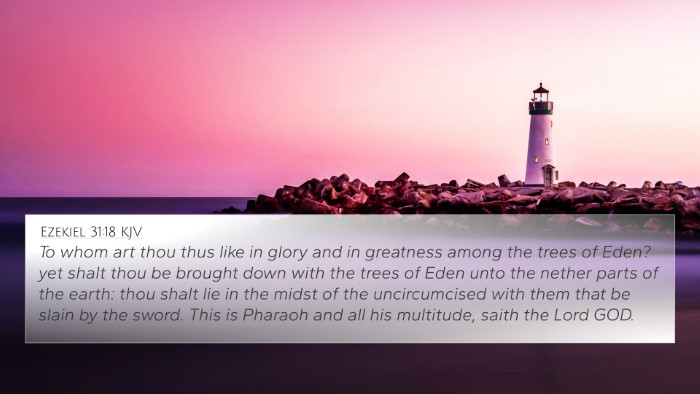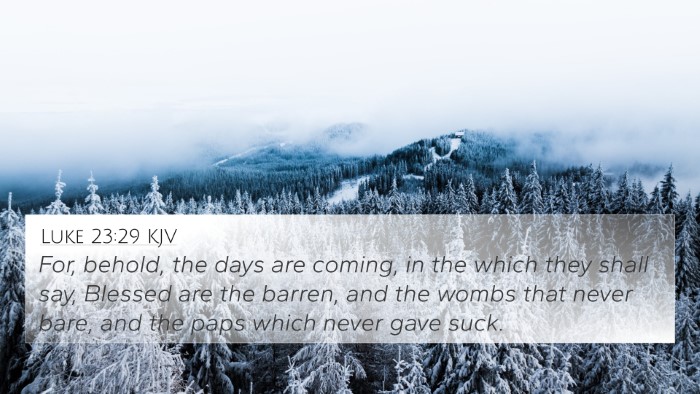Summary of Luke 3:9
Bible Verse: Luke 3:9 - "And now also the axe is laid unto the root of the trees: every tree therefore which bringeth not forth good fruit is hewn down, and cast into the fire."
Contextual Overview
This verse occurs during John the Baptist's ministry, emphasizing the need for repentance and the effectiveness of one's faith. John warns the people that mere ancestry or tradition would not suffice but that true repentance is necessary for fruitful living in the sight of God.
Interpretation and Meaning
The imagery of the axe indicates an impending judgment, suggesting that those who do not produce righteous deeds, akin to good fruit, are subject to destruction. It denotes God's preparedness to judge and the urgency for each individual to examine their spiritual condition.
Insights from Commentaries
-
Matthew Henry:
Henry highlights that the axe signifies God's justice ready to execute judgment on the unrepentant. He notes that true repentance must be evident through good works, as mere claims of faith without corresponding actions are insufficient.
-
Albert Barnes:
Barnes elaborates on the metaphor of the axe being laid at the root, symbolizing immediate readiness for judgment. He emphasizes that the 'good fruit' is synonymous with good works stemming from genuine faith, and anyone failing in this regard faces dire consequences.
-
Adam Clarke:
Clarke provides a detailed analysis of the phrase 'cast into the fire', drawing parallels with OT teachings about divine judgment. He underscores the necessity of bearing fruit as evidence of one's relationship with God.
Bible Cross References
- Matthew 3:10: "And now also the axe is laid unto the root of the trees: therefore every tree which bringeth not forth good fruit is hewn down, and cast into the fire." - A direct parallel reinforcing the theme of fruit-bearing and judgment.
- John 15:2: "Every branch in me that beareth not fruit he taketh away: and every branch that beareth fruit, he purgeth it, that it may bring forth more fruit." - Jesus reiterates the necessity of producing fruit in union with Him.
- Galatians 5:22-23: "But the fruit of the Spirit is love, joy, peace, longsuffering, gentleness, goodness, faith, meekness, temperance: against such there is no law." - Defines the kind of fruit believers are called to bear through the Spirit.
- James 2:17: "Even so faith, if it hath not works, is dead, being alone." - This reinforces that faith must produce tangible outcomes in good deeds.
- 1 Corinthians 3:13: "Every man's work shall be made manifest: for the day shall declare it, because it shall be revealed by fire; and the fire shall try every man's work of what sort it is." - Illustrated judgment on works, akin to that of Luke 3:9.
- Matthew 12:33: "Either make the tree good, and his fruit good; or else make the tree corrupt, and his fruit corrupt: for the tree is known by his fruit." - Indicates that one's character is revealed through their actions.
- Revelation 20:15: "And whosoever was not found written in the book of life was cast into the lake of fire." - Explains the ultimate consequence of being unfruitful and not pardoned through Christ.
Thematic Bible Verse Connections
Luke 3:9 is thematically connected to various other scriptures that discuss the fruitfulness associated with faith, judgment, and repentance. Notably, the theme of producing good fruit connects significantly with both Old and New Testament teachings.
Understanding the Urgent Call to Repentance
The urgent message of repentance found in this verse is common in prophetic literature. The necessity to bear fruit reflects ongoing discussions in the epistles and Gospels about the transformation that accompanies faith.
Tools for Bible Cross-Referencing
To dive deeper into the interconnectedness of biblical texts, believers can utilize a Bible concordance, which serves as an essential tool for discovering Bible verse cross-references. A well-structured Bible cross-reference guide can greatly assist in personal study and sermon preparation.
Practicing Cross-Referencing in Study
Engaging in cross-reference Bible study methods helps in contextualizing scripture, allowing for a comparative Bible verse analysis that enriches one’s understanding of biblical themes and narratives.
Conclusion
In summary, Luke 3:9 serves as a poignant reminder of the need for genuine repentance reflected through actions. It stresses that believers must continually assess their lives for spiritual fruitfulness, drawing connections to various scriptures that reciprocate this urgent call to maintain a productive relationship with God.
